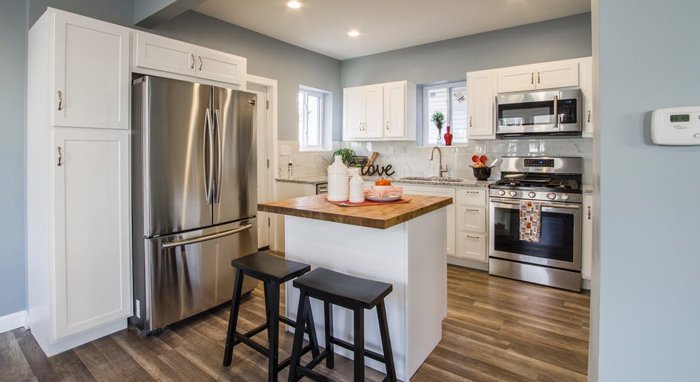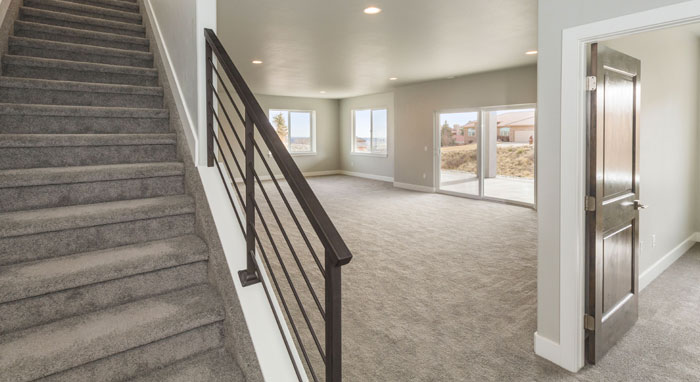
Updated March 30, 2024
Research has shown that it’s safer to hire someone referred by a neighbor, coworker, family member, or friend than to hire someone you simply Googled.
Getting a referral is a cheaper way to hire a contractor, a faster way to find a contractor, and generally produces a better experience, too.
There’s greater risk in hiring an unknown contractor, and hiring the wrong person can be very costly.
If you hire an unqualified contractor, not only are they likely unable to do the job properly, but they could end up doing additional damage that could cost you thousands to remediate when it's all said and done.
You'll also have to deal with the additional time and cost it takes to recruit a new contractor to get the job done right.
Hiring the right contractor is critical to a positive experience, which is why we always recommend speaking with multiple contractors and taking your time to vet each one you speak with before hiring.
We'll go over a few simple but effective methods to finding a qualified contractor in your area.
Jump to:
Find reputable demolition contractors that service your area
Reaching Out
Start by gathering your pool of applicants. (We recommend speaking to at least three contractors.)
Asking for referrals from neighbors, coworkers, and friends is a great place to start because they're unlikely to refer you to someone who's unqualified.
If you know they did good work for your neighbor; you know they're capable of doing good work for you.
Be wary that applicants may not always be what they seem on paper, though.
Always obtain as much proof as possible to confirm their good reputation:
- Read customer reviews
- Find examples of their work (whether in person or in photos)
- Speak with them in person regarding your project’s specific details
If you need help finding licensed and insured local contractors, Hometown can help. Our database makes it easy to find qualified contractors throughout the states to request multiple quotes at once with our quote request form.
Getting in touch with multiple contractors is important to not only find the best contractor for the job, but the best fit for you, your budget, and your schedule.
Learn more:
- Licensed vs Unlicensed: Why It's Important to Hire a Licensed Contractor
- Who’s Responsible If My Contractor Doesn’t Pull a Permit?
- Demolition Project Planning: A Step-by-Step Guide to Ensure a Successful Outcome
The Interview Process

Interviews can be a good indicator of a person's personality, but they are not always a great indicator of job performance, so pay close attention to how each contractor answers your questions.
Certain questions can help you weed out the contractors who wouldn’t be a good fit, and asking each contractor the same questions will allow you to compare them fairly and accurately.
However, it’s also important to ask them questions specific to them and the answers they give you to further determine what sets each contractor apart from the rest.
As mentioned above, ask contractors you speak with to provide you with detailed estimates, proof of insurance and licensing (if not already provided), and references of work samples.
Getting proof of insurance (general liability insurance and workers' comp) directly from the insurance company is highly recommended, as those with nefarious intentions could easily falsify these types of documents.
If they are hesitant to provide this information, this could be a red flag worth walking away from.
Ask follow-up questions regarding their completed projects, licensing, insurance, and more until you feel you have a thorough understanding of the contractor’s knowledge and experience.
Be sure to confirm that their standing with your state's licensing board is up-to-date by confirming their license number in their database. These can typically be found with a quick Google search of your state + "contractor licensing board".
The Decision
The method above should help you choose a great contractor.
Don’t skip the background check. With the amount of deception in applications, doing your due diligence is essential.
Who you hire is an important decision that can backfire if taken lightly. Take the time to make the right choice for you.
Hometown is a great resource to help you not only get answers to common demolition questions, but we can help cut your research time in half with our single quote request form. Get connected to reputable contractors that service your area in a matter of minutes!
Find the right demolition contractor for you
Continue reading:


